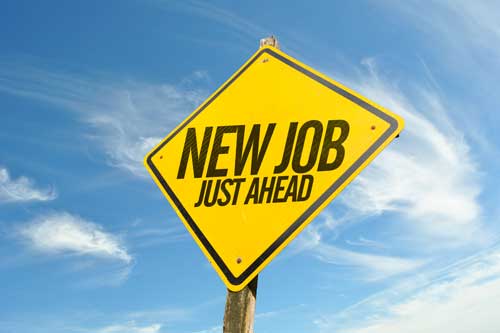JOB INTERVIEWS TIPS
Got an important interview lined up? Have you been looking for work but struggling to nail that interview?
If so, ARG Workforce are here to help you!
One key advantage of going through a recruitment company when searching for your perfect job is the advice and training we can offer you. We have the perfect 3-P guide to help you ace that interview.
First things first: Do your research.
Get to know the company you are applying for, their mission, values and their culture. Also look into the interviewer (if known), do a quick search on LinkedIn or read through their bio on the company website. This will show that you are prepared and eager to work for their company. The more you know about the company you are applying for, the more you can show that you are a ‘good fit’ for the job.
Next up: Study the job description!
This is the document that depicts whether you are a good fit for the job. Study it carefully and make sure your knowledge, skills and abilities align with what the company is looking for. Pick out one or two of these key points and think of a situation where you completed a task involving that skill, or a time when you overcame adversity in a similar environment.
Last but not least: Prepare some questions!
These well thought out questions can be used to demolish any reservations the interviewer may have of you. Make sure you do not include information that they have already given to you. Have a few prepared in case they have covered most aspects already.
When arriving for an interview, do not be late! But also remember to not be too early. The interviewer most likely has a very busy schedule so you definitely don’t want to put their day out, or make them feel rushed. Chances are you aren’t the only person being interviewed for the position either. Therefore, it is recommended that you arrive 5-10 minutes before your interview.
Never underestimate the value of non-verbal cues. A genuine smile goes a long way, eye contact is a must, and active listening shows enthusiasm. Be sure to not cut the interviewer off, wait until they ask an open ended question giving you time to respond. Smiling, nodding and repeating important information are all things that show you are interested in the conversation, and the position.
Checklist:
- Research the company and interviewer (if known)
- Carefully read the position description
- Prepare some questions
- Present yourself in a professional manner
- Participate in active listening
- Be confident and advocate your own brand!
- You are your own brand, know it and advocate it

RESUME HELP
Feeling overwhelmed with the thought of writing your resume? Don’t even know where to start?
Click on the link below for a helpful guide to producing a resume that is easy to read. Pack it full of facts that the employer is wanting to hear. Keep it concise and well laid out, and your resume will be sure to stand out!
HOW TO WRITE A COVERLETTER
The value of writing a cover letter should not be underestimated. It could mean the difference between you getting the chance to interview for your dream role, or your resume getting lost under a pile of applications – make your cover letter stand out!
A cover letter is a personal link to your hiring manager. Your cover letter is a way to connect your skills to that of the advertised job. Although we do not recommend applying for a job you are not qualified for, a cover letter can be used to explain any miss-match that might occur.
What to do:
- Outline your key skills/experiences that are relevant to the specific job – be sure to outline what you can do for the company, not what the company could do for you.
- Include your future aspirations – relate these to the job you are applying for.
- Specify your current availability – check what is specified on the job description and show flexibility where you can.
What not to do:
- Your cover letter should not read like a novel – keep it short, sweet and to the point.

COMMON INTERVIEW QUESTIONS
Congratulations! You have made it to the interview stage.
Interviews are largely behavioural based where the employer seeks to find a sense of who you are and how you might handle certain situations. They will discover your strengths and weaknesses so it is a perfect opportunity for you to sell your skills!
The most important tip we can give you is to be confident. The best way to achieve this is to be prepared, and that is where we step in:
The 7 most common interview questions and how to answer them:

